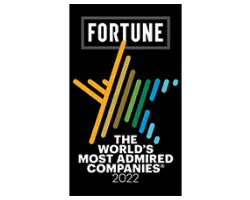In our today’s episode, we are super thrilled to have Matt Shiffrin, the Senior Vice President and Chief Financial Officer of Tech Data, Asia Pacific and Japan, a leading provider of IT products and services.
So, let’s discover the dynamics of Tech Data services, strategies, tech integration obstacles alongside gaining insights on the evolving financial domain. Welcome Matt, we’re delighted to have you with us.
Over the years, I’ve been able to collaborate with talented professionals across the globe. We’re really dedicated to driving innovation, operational excellence and creating value for our vendors, customers and shareholders in what is a very fast-paced-changing IT ecosystem. I’ve also been fortunate enough to learn from incredible mentors along the way and their guidance has certainly helped me understand our business, become a better leader and really importantly, become a more effective finance partner.
Host: So Matt, you’ve been associated with Tech Data since 2013 and are now serving as a CFO. How has your journey been? And we would love to know about your experiences in corporate finance and the key indicators driving those strategic success.
Matt: Yeah. So, as I just kind of mentioned in my introduction, right, over the years, I’ve been able to collaborate in my role with talented professionals across the globe and really focus on bringing innovation, operational excellence and creating value for our vendors and shareholders. So, look, in terms of corporate finance, my experience has been shaped by our commitment to really having strong strategic planning. We focus on aligning our financial practices with our long-term business goals to provide that solid foundation for growth and delivering on our commitments to our shareholders.
Our global strategy is really built around delivering higher value. This higher value for us is based on four pillars to succeed. So, we focus on investing in high growth technologies, strengthening our end-to-end portfolio, transforming Tech Data digitally and expanding our global footprint.
And really from a corporate finance sense, right, it’s through a combination of both organic as well as inorganic growth that we aim to achieve each of these strategy pillars and deliver that higher value for our stakeholders. Keep evolving is the key, I guess. Yeah, for sure.
Host: So, speaking of market conditions, the current financial market is highly volatile. How will inflation and the potential economic slowdown impact businesses’ profitability and the margins?
Matt: Yeah, well, I mean, so yeah, inflation has certainly been a challenge in recent years and really noticeable coming out of the COVID-19 pandemic. A lot of companies face challenges.
Now, for me, when we look at some of the key drivers, we see and hear often factors like supply chain disruptions, labor shortages, and increased demand as economies really started to fully reopen. Further to this, we also saw governments try to affect this by changing interest rates across the globe, and correspondingly, there was impacts to foreign currency rates. This all has an impact for businesses, and certainly it plays a role in a company’s profitability and margins, and businesses need to look for ways to build resiliency and manage things like interest expense and foreign currency risk, which certainly continue to be a focus for us.
Now, for Tech Data, these challenges provided us also with an opportunity, really to kind of showcase our strength and resilience of our business model and capability. I think what’s important for businesses during periods like this is to really remain focused on cash and working with partners who possess a really strong understanding or comprehensive understanding of their channel to really be able to support them in securing and stabilizing what are their financing needs. That’s a wise approach, especially in such an unpredictable situation.
Host: So, from your view, what are the fundamental financial metrics companies should focus on to evaluate performance? Like, are there any major ones that Tech Data considers when measuring its growth initiatives?
Matt: Yeah, sure. So, fundamental financial metrics, right, for companies to focus on. So first, I guess every company and industry is different, and it’s also important to understand where in the life cycle a company is to really best determine how to evaluate their financial performance.
Now, I guess naturally, revenue, gross margin, operating margin growth are core metrics that are fundamental to the performance for many businesses. However, if you specifically mentioned growth initiatives, right, when I’m looking at growth initiatives, for me, it’s important to understand what problem are we actually trying to solve and how can we leverage perhaps our global team extensive line card to address this problem and really bring that value back to our stakeholders. So for example, at Tech Data, we have focused on operating margin and free cash flow generation.
In fact, we have a balanced capital return framework that helps guide our financial strategies to really bring value back for our shareholders. We’ll use this framework to deliver returns to our shareholders through dividends and even share repurchases. And in fact, recently in our most recent filing and external announcement, you may have seen that this fiscal year, we’ve executed shareholder returns at 274% of year-to-date free cash flow to our shareholders.
For me and for others, I hope this demonstrates our commitment to really maximizing that shareholder value, which I think is so critical for businesses to focus on. It’s really interesting to estimate how these metrics offer a profound view of a company’s performance. Yeah, it certainly is.
There’s a lot to be said about it. But again, every company in every industry is different.
Host: So Matt, you recently introduced Tech Data Capital, an innovative financial solution. Can you walk us through the exact idea, what motivated its launch?
Matt: Yeah, so sure. And yes, I’m really proud of Tech Data Capital. So, thanks for asking about it.
And to begin, let’s first talk about the challenge, right, we identified for our partner ecosystem. So per our direction of technology report, which is something that we invest to help prepare for on behalf of our partners, it gathers insights from our partners across Asia Pacific and Japan, we actually identified that credit and financial scalability emerged as a key challenge for 59% of partners in our region. So, you know, earlier, you asked me about inflation, right? We talked a little bit earlier about the challenges companies may be facing.
Well, in addition to that rapid technological changes are creating significant business challenges and vendors, distributors and partners in our ecosystem are looking to the IT channel to validate and scale new technologies. So, what this means is pushing partners to need to go beyond traditional lending solutions and explore alternative sources for financing, or to adopt maybe enhanced payment solutions to help fund growth. This, it’ll help fund business growth, help them to invest in new technologies and ultimately help them to meet their customers’ demands.
So, we launched Tech Data Capital after first listening to our partners challenges, seeing this 59% and to help the IT channel partners overcome what are the traditional credit constraints by focusing on flexible financial solutions that enable them to scale their purchases and operations more effectively. And since launching in May in Singapore, and then in Australia, we are really encouraged by the great response in the business value that we’ve been able to help support for our partners. We’ve supported deals ranging from $100,000 all the way up to $20 million already.
And it’s importantly, this encompasses both a hardware or a software deal and hopefully really demonstrates the significance of having those flexible financing in the current environment.
Host: So just to add on to that, as we all know, Tech Data is on an expansion mission and is busy launching Tech Data Capital in Singapore, Australia and India. So how does Tech Data Capital majorly differentiate itself from other financing solutions available?
Matt: Yeah, thanks for asking. I’m glad you asked about this, right? Because it’s a question I get quite often. So, Tech Data Capital offers flexible payment solutions powered by selected financial institutions that we work with for customizable payment options to meet the needs of our customers. Those could be annual, monthly payment or consumption-based model.
Now, it’s this flexibility that empowers our partners to extend their overall purchasing power and increase their profitability, enabling them to invest in inventory, infrastructure and other expansion efforts without being limited by traditional credit constraints with the partners they work with. And their existing credit capacities to support their growing business. So, unlike the traditional vendors, the financial institutions that power Tech Data Capital are well versed on the IT ecosystem and have industry specific knowledge that it helps us enable them to better qualify and assess the credit worthiness of our partners and ultimately their end customers.
The financing process is simplified, right, because we’re able to integrate that payment solution into the product sale upfront. And this is funded for the full term upfront for the partner. This approach actually eliminates credit risk for our partners to increase value for the customers.
With Tech Data Capital, we’ve also made the investments that partners receive support through access to our internal now experienced financial solution advisors, a dedicated sales support team, as well as marketing and training resources to help support them in this journey. This is all in addition to the needed credit capacity just to fund and support that growth opportunity. And as you mentioned, right, exciting news is we’re approaching our official go live for India next, and we certainly plan to continue to expand across Asia in the coming months.
Host: That’s a great initiative, addressing the financial needs of your partners directly by just streamlining the entire process. That’s really great. So, looking ahead, how do you use AI in your work and personal life? Could you share some examples how it has impacted your day-to-day activities?
Matt: Yes, certainly. I mean, it’s kind of, you know, everyone’s talking about AI right now. And I certainly think generation AI is a game changer for sure. And it’s definitely transforming everything that we do, both personally and professionally.
Right. So, you ask, like, you know, how do I use AI? Well, I’ll start maybe on the personal front. So, like many, I found usage for chat GPT and funny enough, it actually helped me write a wedding speech recently.
But something else I’ve really enjoyed using are the Ray-Ban Meta AI powered eyeglasses. These are actually eyeglasses that look like the normal Ray-Ban Wayfair sunglasses, but they provide hands free access to navigation or real time language translation for me when I’m traveling across Asia. They can capture photos and videos, which I find useful in capturing those moments for my three children.
They really are fun to use. So, switching off a personal life, now going to the professional at work. Microsoft Copilot is becoming really an indispensable tool for us.
It helps me to transcribe meetings, generate reports and provide even some data insights from analysis that we’re able to pull together. I’ve also even found uses in helping to maybe get started on the or draft initials of presentations and managing emails more efficiently. It’s certainly playing a role in everything that we’re doing.
And I think we’re all starting to see those use cases pick up. I strongly agree with you. Your AI is here to just simplify our lives.
Host: OK, so moving on. And this is my personal favorite question. What types of solutions does TechData provide to address the needs of its diverse ecosystem partners? Like how does TechData showcase tangible business outcomes for clients, for its technology or for products and the services?
Matt: Yeah, thanks for that. And it is an interesting question, right? So how does TechData provide this value for our partners? Well, I guess let me start there. As a leading global distributor and solutions aggregator in the IT ecosystem, we actually help our customers maximize the value of technology investments and support them in unlocking those growth opportunities. So now how do we do that? Right.
Well, first of all, we continually invest with the goal of bringing simplicity to our partners and with the goal of ultimately making them successful, because when they win, we win. We do this through investment in tools, people and market resource. So maybe I can start with how do we focus on the complexity.
As solution building and delivery can be intricate and time consuming, our role as a solution aggregator is to simplify these complexities for the community. So, three examples, right? Our investments in our tech center of excellence is a great example where we support partners and end users with complex IT solutioning by using proof of concept explanations, even allowing them to demo equipment and support their enablement through actual sales, technical and solution training for them to be more successful. Now, we talked a little bit about AI earlier, right? You asked me about personally how I use them professionally, but this is also another area where partners need help and support for those use cases.
So, another example is to empower partners on their AI journey and really start to maybe gain that competitive edge. We’ve been investing in actually recently launched our destination AI program in the Asia-Pacific and Japan region. So, what does this program do? Right.
This program offers a comprehensive, strategic aggregation of many different types of AI services and resources for our partners to actually be able to leverage upon. Partners can access enablement assets. They can reference architectures with even pre-validated ready-to-deploy solutions across several use cases with many of the leading AI vendors.
So, for instance, we collaborated with Microsoft to implement enablement journey for Microsoft 365 Copilot earlier this year and make it easier for our partners to see and leverage that use case. And then, of course, there’s Tech Data, which we talked about. This was built after listening to our partners and understanding their problems that they face from our direction of technology report.
If I just continue on just a little bit, because it’s a great question with a lot of potential here is, you know, we can talk about how do we accelerate go-to-market strategies, right? So we’re able to offer managed professional service in cloud security and even as a service to help our partners in their vision to deliver profitable growth. They can leverage our tools, solutions, even white label services to address whatever their unique business needs may be, and they can help scale their operations and reduce their time to market for new offerings. And that direction of technology report is something that we created to really try to bring insights back to our partners so that everyone can understand and be at this because we’re at the center of the technology ecosystem to be able to add that value.
And this really highlights the voice of the partner and serves as a very valuable resource we’ve found to identify those trends and opportunities. Everything sounds very intriguing and definitely very effective as well. Yeah, certainly.
We’ve definitely it’s always changing, but we evolve as the market goes. And I think that’s really important. Absolutely.
Host: So, you have a large vendor portfolio that includes the big players such as IBM, Apple, Cisco, Red Hat, SAS and a lot more. How do you manage these? What are the major advantages of having an extensive vendor portfolio?
Matt: Yeah, thanks. And yeah, we’re really proud of our diverse and robust line of card offerings, as you kind of mentioned a few of them.
And certainly we have to manage them very carefully. But look, as part of I mentioned, our solution aggregation and orchestration approach, partners and customers are looking for multi-vendor solutions today more than ever. The IT market’s changed a lot, and that solution is really consisting of multi-vendor.
So, our broad line card is actually it’s a key competitive advantage for the channel as a whole. The breadth and depth of our end-to-end portfolio enables Tech Data to really focus on developing solutions to meet the needs of partners and their end customers and be a win-win for vendors also as being in these solutions enable us to help them find new opportunities to accelerate, well, their growth. So now we also support our vendors through, let’s say, our established and specialized business units.
This helps us to keep focus and also ensure that we have the support model for what is their business profile. So, we have different business units like our edge solutions, which focus more on endpoint type products, and we have advanced solutions for more our strategic technologies and data center. We even have specialized units for component and design software vendors.
This allows us to strategically focus on business activities and really focusing in teams to gain the right skills to strengthen our vendor relationships. So, it really is important. It helps us to leverage our business model and navigate and mitigate challenges in a tough market condition.
Host: So finally, what are the Tech Data’s most significant challenges in the current technology market and how is the company addressing them?
Matt: Well, I think I’ve mentioned it a couple of times, right? The pace at which the IT landscape is changing is so unprecedented and incredibly fast. Now, it’s always been fast, but I think right now it’s one of the clear moments in time in history. We’re seeing the changing happening faster than the average pace.
Right now, this leads to increased complexity and challenges for our entire ecosystem. Now, importantly, though, these challenges also present opportunities for Tech Data to help focus on how can we simplify those complexities with, for example, I talked about our tech COE, destination AI and help support our partners in what is an accelerated go to market. Now, we just talked about our diverse line card and maybe the challenges associated with that, but we think of it as how we can be end to end support model that allows us to pivot to the best support in whatever the market conditions throw at us.
And we talked about the direction of technology report. We want to continue to listen and gather market insights to be able to address these challenges that we might face. And last year, that 59 percent of partners facing credit challenges led us to really focus on and accelerate our go to market as it relates to Tech Data capital.
Right. So, with the ongoing AI boom, there’s a lot of questions. And certainly, we have questions as well that we work through.
But we understand the market is becoming increasingly competitive. We know that our partners are eager to seize these market opportunities. And so, for us, it’s focusing on how can we simplify this for them and leverage insights like the direction of technology report and other market data to help support our partners in this.
So, I guess to summarize, when it comes to challenges in the market, we’re committed to consistently innovating our processes, capitalizing on these emerging technologies and really supporting our partners in overcoming what are their challenges and turning them into avenues for success. I really appreciate that answer.
Host: So, Matt, just to end this on a fun note, if you could have any superpower, what would it be and why?
Matt: That’s a fun one. Oh, I guess superpower would be speed to move around because there’s a lot to get done right now. Right. So being able to fly throughout and kind of get things, get the place to place faster, because there’s just a lot of opportunities out there.
I mean, both personally and professionally. Right. I want to see the world. I want to continue traveling with my family, but also professionally. There’s just a lot to get done. And the faster I can move, the more I could see.
Host: Amazing. Thanks a lot, Matt, to be such a sport for sharing your experiences and viewpoints. Tech Data is well equipped to continue leading the technology space despite the challenges ahead.
Thank you. Thank you, Matt. Bye.
Host: Thank you, everyone, for joining us today. I am your host, Sailee, signing off.
See you soon in the next episode of Extra Mile by Your Tech Diet, with our next guest and leader sharing their wisdom and thoughts. So please stay tuned.




